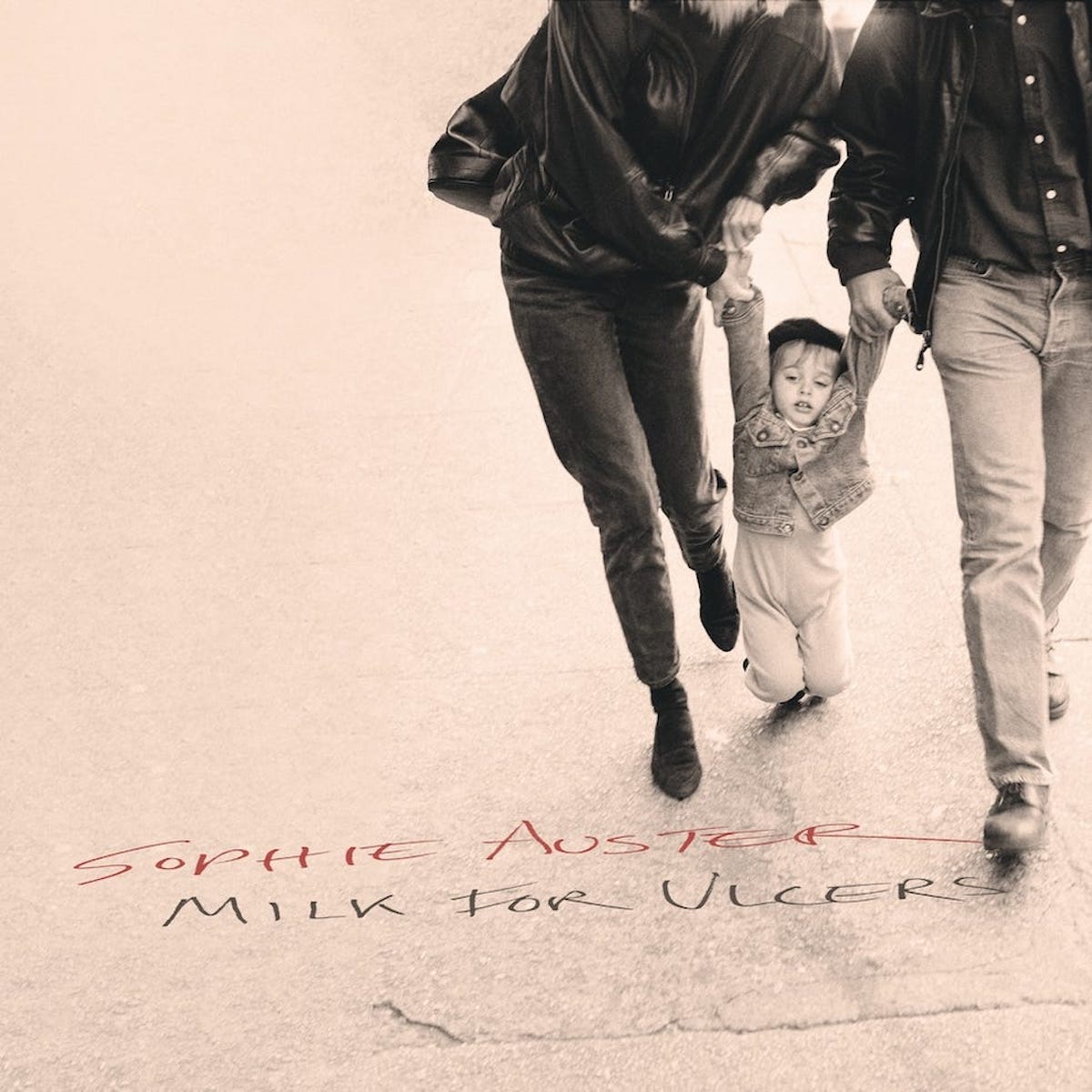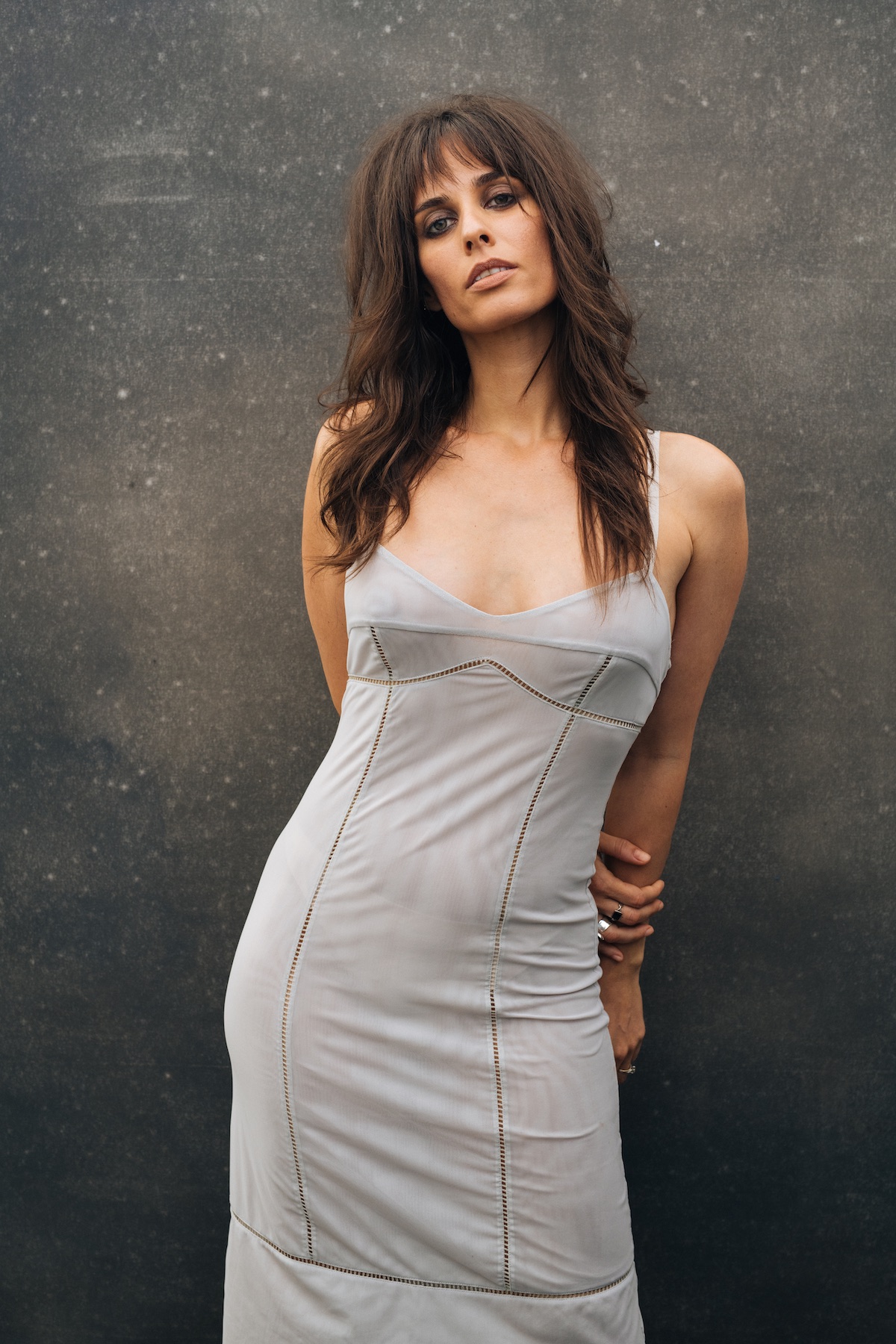Sophie Auster is of rare delicacy. When he turns on the camera on Zoom, he immediately issues a feeling of sweetness and calm innate, of those that either you are born or that even after twenty years in a Buddhist temple you can reach. The opportunity to feel is the release of his third album Milk for ulcers which contains ambivalent and opposite feelings: pain and healing, life and death, the complexity of the contemporary world and its decoding.
The title contains all the irony of the fast and homemade remedies that we invent to relieve suffering: that milk that gives relief into the immediate, but in the long run the situation worsens. But Sophie, who recently had to face the loss of the father, the writer Paul Auster, of shortcuts he sought very few. He used music as a cure, for her and for all of us. Taking out an alternative pop album full of intimism and universal feelings.
I listened Milk for ulcers And it seemed to me to enter your life directly. How autobiographical this album is?
Everything I tried to do with music has always started from my experiences or from things I have read or seen. In the past, perhaps it was a little more hidden as a process. As if it had been in code. Now I needed to say something personal and to do it in a simple way, even if there is still a sort of poetry in words, but it is simpler than everything I have done before. I tried to understand who I was along the way and, when I understood it, I adapted to me.
Are you on the album cover?
Yes, it's me. There are my parents who are holding me by the hand and I thought it was a fun image. It was taken many years ago, but I managed to track down the photographer to ask for permission to use it. There are a series of photos taken on that day, but I liked this exact moment when it seems that they are dragging me, and I thought it was an emblematic image: seeing me small in the midst of these two pairs of legs.
And it also transmits the feeling of someone who supports you, who helps you walk.
Yes, exactly.

As for the title, I found it together ironic and interesting. I guess you refer to the last period of your life in which you had to face your dad's death. Have you managed to find your personal “milk for ulcers”, a habit, a person, an action, anything that could give you relief in a difficult moment?
At some point, when I was in post-production of the album, I had this terrible stomach pain. And I thought: “Here, it's happening, I have some ulcers!” Obviously there is irony in the title, because people use milk to try to relieve the pain of an ulcer, but it is a remedy that does not work. I was interested in investigating this disc all the things we do to feel better. I think that when it comes to tragedies, deaths, pain, we always look for shortcuts to feel better, we look in wrong directions, how to go to a bar snorting ourselves, or we look at better directions, as in my case, who have surrounded me with people who really supported me. There are other things, such as gardening, which have been therapeutic for me. But also move the body, whether it is dancing or training. Obviously making music was extremely curative. But the greatest help of all came from therapy. I think, especially when you have to face the end of life, you have to devote yourself to the things that make us really happy.
Is there a song on the record you are particularly tied to?
Oh, it's a good question. I try something for all songs. There is a piece, however, that I wrote for my father and that it is very special for me because he listened to it just before he died. He managed to listen to the whole album before dying, which makes me feel really good, but also sad. I think among all the songs Flying Machine I occupy a special place because I wrote it a long time ago, and I wrote it with a completely different intention, produced by someone completely different, and I really hated the production so I never let it come out. When I went back to work on the album, it's as if the song had returned to the place I had imagined for her, and it was very rewarding to recover something I had discarded.
You started performing in some New York jazz clubs. Is it a scene in which you are still involved, even just as a fan? Do you think it is a scene with a certain appeal for the American listener? For example, in Italy many small groups are emerging that contaminate pop and the indie com elements jazz.
I don't think you are part of the jazz scene, it is a very specific scene in New York, but I have friends who are part of it and I played with some musicians who are also excellent jazz musicians. I would say that I am part of more than one alternative pop scene, even if we lived a few minutes from an excellent jazz bar and I saw many friends playing there. I grew up singing and loving jazz, it is absolutely a part of me and I feel that there was something in my voice that could leave a mark within the genre. But I believe that no musician in New York can really be defined as part of the scene.
Speaking of the pop scene instead, would you consider working with more mainstream artists such as Billie Eilish or Chapell Roan? Or don't you like this type of contamination?
Yes, it could change my whole life. They would work well with my style and both are doing an excellent job in the mainstream pop.
What artists are there in your playlist right now?
Lately I have listened in rotation Don Mcclean. People almost always know his most famous song, American piewhich is beautiful, but its repertoire is very large and has many variations. With my husband we are listening to this Australian band called Tropical Fuck Storm. They are really fun and have made a cover of Stayin 'Alive of the Bee Gees that I love. I listened to Feist lately, then we listen to a lot Nina Simone and Tom Waits. There are never even the classics, Mozart, Beethoven, Bach that I make the child feel at home. But we also love Raffi, who writes music for children: BananaPhone We listen to it for whole days. I start dancing and my son follows me, raises his hands and imitates me. We should create more songs for children because nobody cares, but in reality they are all day in the life of us parents, they occupy our space.
How is your relationship with social networks instead? Do you use them to spread your job or do you try to stay away from it?
I should improve on this aspect. When I started taking care of them during Covid, I realized that, putting commitment to us, there is a return and I heard a community around me. I liked the idea of having feedback because I'm used to playing and having feedback. Then I started playing online, but when I returned to the real world and I was able to play in front of real people, my interest in social media is completely blended. I use social networks especially to allow fans to find me, see where I play, I can post the shows and the tour. I also used Tiktok for a while, but I didn't post anything. I thought of inventing something, but it is very difficult, you have to learn the language of new media. At the moment I have more fun on Instagram than on Tiktok. On Tiktok there are very disturbing things for which I am not prepared, but you also find extraordinary things for children.
You will go on tour after the release of Milk for ulcers?
Yes, we are trying to understand even when I can come to Italy to do some shows. Now I'm going to Spain and Germany, I have some date in Denmark and then we are trying to attack some other date. I could go back to September because summer is too close.
Will you play in small venues or in the festivals?
I will make a festival in August, in Denmark, which is really beautiful. The rest will be a mix of theaters and clubs. I love to play in theaters, there is something intimate. See these old theaters with the balconies at the top, I like to look up and see people above me, it's magical.
I have a question that probably everyone is doing. What is your father's work you are most tied to? Not necessarily the best, but the one who has impactful most about your person and art.
I usually never choose my father's favorite jobs, but I like it how you asked the question. His first book I read was In the country of the last things And I went crazy to the idea that he had a 19 -year -old girl as protagonist. I was very young at the time and it was incredible that my father could be able to make her seem so true. For me it was a special book, also for the political circumstances in which we find ourselves, I recommend everyone to read it.

Photo: Spencer Ostrander
When did you make how important your father is in American literature? You grew up seeing him simply as a parent, but was there a time when you said to you “or my God, my father is Paul Auster”?
At home, in family dynamics, these things are difficult to understand, especially when you are a child. Then once, I was bigger, my father brought us all to the film festival in Cannes. I will have been 9 years old or something like that and around us there were people who were screaming for him. Then at a certain point he climbed on stage together with the stars of the films and I understood that this was not very normal. I was surrounded by many celebrities who were myths for me. I remember seeing Christina Ricci, who made a lot of children for children, and I was in the same place where she was.
Would you like to combine your passion for cinema and music by dedicating yourself to the soundtracks? I think your music would fit by brush on certain more intimate films.
I would absolutely like to.

